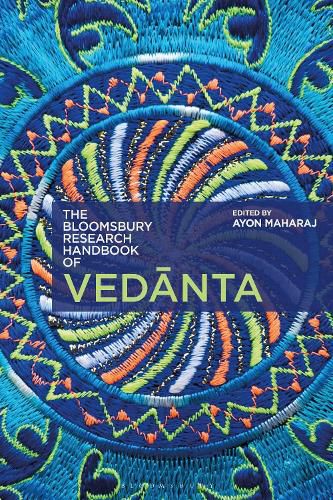Readings Newsletter
Become a Readings Member to make your shopping experience even easier.
Sign in or sign up for free!
You’re not far away from qualifying for FREE standard shipping within Australia
You’ve qualified for FREE standard shipping within Australia
The cart is loading…






This handbook brings together a distinguished team of scholars from philosophy, theology, and religious studies to provide the first in-depth discussion of Vedanta and the many different systems of thought that make up this tradition of Indian philosophy.
Emphasizing the historical development of Vedantic thought, it includes chapters on numerous classical Vedantic philosophies as well as the modern Vedantic views of Sri Ramakrishna, Sri Aurobindo, and Romain Rolland. The volume offers careful hermeneutic analyses of how Vedantic texts have been interpreted, and it addresses key issues and debates in Vedanta, including religious diversity, the nature of God, and the possibility of embodied liberation. Venturing into cross-philosophical and cross-cultural territory, it also brings Vedanta into dialogue with Saiva Nondualism as well as contemporary Western analytic philosophy.
Highlighting current scholarly controversies and charting new paths of inquiry, this is an indispensable research guide for anyone interested in the past, present, and future of Vedanta and Indian philosophy.
$9.00 standard shipping within Australia
FREE standard shipping within Australia for orders over $100.00
Express & International shipping calculated at checkout
This handbook brings together a distinguished team of scholars from philosophy, theology, and religious studies to provide the first in-depth discussion of Vedanta and the many different systems of thought that make up this tradition of Indian philosophy.
Emphasizing the historical development of Vedantic thought, it includes chapters on numerous classical Vedantic philosophies as well as the modern Vedantic views of Sri Ramakrishna, Sri Aurobindo, and Romain Rolland. The volume offers careful hermeneutic analyses of how Vedantic texts have been interpreted, and it addresses key issues and debates in Vedanta, including religious diversity, the nature of God, and the possibility of embodied liberation. Venturing into cross-philosophical and cross-cultural territory, it also brings Vedanta into dialogue with Saiva Nondualism as well as contemporary Western analytic philosophy.
Highlighting current scholarly controversies and charting new paths of inquiry, this is an indispensable research guide for anyone interested in the past, present, and future of Vedanta and Indian philosophy.